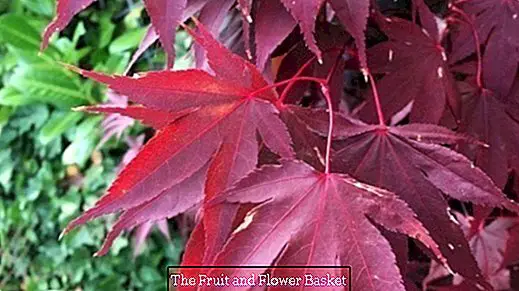Did you know that? 10 facts about autumn
"Autumn is a second spring, when every leaf is in bloom ?. (Albert Camus)
After the great heat of this summer many of us would have been happy about the autumn. Autumn brings not only a cooling relief, but is really adorable in its own way! Leaves fall down and form a beautiful, colorful carpet. The fresh wind frees your head from the summer chaos and prepares us for something new. The body is no longer exposed to heat. The sun's rays are not so arduously hot, but pleasantly warm.
The autumn spreads a magical, cozy atmosphere, even in the bad weather. The feel-good atmosphere is everywhere: You can enjoy it both outdoors while running or indoors at home. It invites us to think and relax. In autumn, we automatically apply the brakes and shift to a lower gear.
Not only pumpkins and apples are ripe in autumn. Other vitamin-rich vegetables and fruits are harvested. Be it carrots, zucchini, beetroot, spinach, corn salad or savoy cabbage; Quinces, grapes, plums or pears? Everything is fresh and available from our own farm. The fruit and vegetable paradise is waiting for us in this beautiful season as well!
10 interesting facts about the fall
1. The word "autumn"
The word "autumn" has in all languages of German linguistic history, be it Old High German? herbisto ?, Middle High German? herbest ?, Germanic? harbista ?, Indo-European? karp ?, a similar meaning related to the harvest. Also in other languages, such as English? Harvest? (? Harvest?), Latin? Carpare? (? cut?), russian ?????? (? sickle?), greek ???????? (? Yield?) Etc., the meanings refer to the harvest time.
2. Astronomical and meteorological autumn
The astronomical autumn in the Northern Hemisphere begins on September 22 or 23 and ends on December 21 or 22. The astronomical autumn in the southern hemisphere begins on March 20 or during the night of March 20 to March 21 and ends on June 21. The meteorological autumn in the northern hemisphere is assigned the calendar months of September, October and November. In the southern hemisphere meteorologically the months March, April, May are considered as autumn.
3rd autumn at the equator and at the poles?
In equatorial regions, there is no real autumn, as with us. Generally there are no classic differences between the seasons, but usually only rainy and dry seasons. Even at the two poles, there are no transitional seasons like autumn and spring! Both the North Pole and the South Pole are dominated by two seasons? Winter and summer. The six winter months are over at the poles darkness, in the rest of the summer months the sun stays the other way round for half a year.
4. The three autumn months and their meanings
The first month of the fall of September comes from the Latin word "septem" and means "seven". Old German month names are "first autumn moon", "Holzmond". or? Holzing ?. The second month of autumn October was also from the Latin "octo? derived, what? eight? means. Earlier this month you often have? Second autumn month ?,? Wine month? or? Gilbhart? called. The last month of November is from the Latin? Novem? and means? nine ?. Since the Middle Ages, the month was called? Third autumn month ?,? Nebelung? or? Windmond ?.
Since the year started in the old Roman calendar with the 1st of March, the months were assigned to other places in the calendar!
5. Where does the term "Indian summer" come from?
The beautiful, sunny days of September and October are called "Indian Summer". The term has nothing to do with old ladies. The "Indian summer"? rather refers to the outdated German word "weisse", which is to weave in the modern German language? called. In the last days of September, young spiders weave long net threads. On the threads they can be carried through the air.
6. Indian summer in other countries
The Indian summer also carries other names in the other countries. In the US and on the Canadian border, the Indian summer is called? Indian Summer ?. In Russia we call sunny and warm autumn days? Babje leto ?. In Bulgaria, the late warm period is called the "Bulgarian Gypsy Summer". In the Mediterranean countries, this period is referred to as St. Martin's summer. In Sweden we speak of Birgitta summer, in Finland? from Ruska-Aika. In Switzerland, Indian summer is known as the Witwensommer or Witwensömmerli.
7. Libido in autumn
Interesting that in autumn, the testosterone levels in both men and women is much higher than in the other three seasons. That's why the libido of both groups is increasing this season. There is also another hypothesis why men are more impressed with women in the fall. It will? Contrast effect? called. In summer, men see a lot of naked woman's skin and get used to it. In the fall it's the other way around, since women have a lot on them, they have to let their imagination run wild.In addition, man and woman are physically active in these chilly months because the hottest time is over. Now there is more cooling and more energy!
8. Autumn emergence according to Greek mythology
According to Greek mythology, autumn came when Persephone, the daughter of Demeter, the Greek goddess of fertility and harvest, was abducted by Hades, god of the underworld. Demeter became very sad and angry at the same time. She dropped the leaves from the trees, dried up the fields, and the flowers in the gardens disappeared. So she gave the way to autumn! Since Persephone returned to Hades every year at this time, autumn got its annual recurrence.
9th egg experiment during the equinox
On the day of the autumn equinox you can do an interesting egg experiment with children. Normally it is impossible for the hard-boiled egg to be on top. But that does not apply to the equinox! On this day everyone can convince themselves of the fact that the egg breaks the rule and stops on the table without rolling.
10. Careful drivers: increased braking distance
Just like the libido, the braking distance increases in autumn by wet roads and the foliage at a travel speed of 100 km / h by about 20 meters. Do not forget that and be careful!





